How can PR professionals’ cultural intelligence influence expanding business communication? How is this reflected through social media activity?
Today I have a guest post by Connor Peters, who has written for the All Things IC blog to examine this topic. I loved reading it and know you will too.
Connor is hoping to create a framework for PR practitioners to use in order to aid cross-cultural expansion of British businesses – whether that be for their own PR businesses, or as communications advice for clients.
He is a final year PR student at Bournemouth University, and president of the Bournemouth University PR Society. You can follow him on Twitter @ConnorPetersPR and connect on LinkedIn. Please take a few moments to help him as he’d love you to complete a short survey.
I’ll hand you over to Connor…
What impact does high cultural intelligence have on comms?
 What’s your IQ like? How about your emotional intelligence? Or your cultural intelligence?
What’s your IQ like? How about your emotional intelligence? Or your cultural intelligence?
You might not have heard of that last one, but it’s a simple concept: the higher your cultural intelligence (CQ), the better you are at handling cross-cultural situations.
Just think – do you believe yourself to be knowledgeable about other cultures? Maybe you change things as subtle as your non-verbal behaviour when a situation requires it? If you do, then you might just have a high CQ.
Scholars believe that in an increasingly global world, having employees with a high CQ may be important for expanding markets.
Sources: Ng et al (2009) and Ng, K.Y., Van Dyne, L., & Ang, S. (2009). Developing global leaders: The role of international experience and cultural intelligence. In W.H. Mobley, Y. Wang, & M. Li (Eds.), Advances in global leadership, 5: 225-250. Bingley, UK: Emerald Group Publishing.
What does it mean?
It’s important to highlight that CQ doesn’t just focused on openness to other nations cultural attributes, but takes into consideration organisational culture. Each organisation has its own culture defined by a set of rules, values and more, which is crafted by members of the organisation and followed by the individuals in it.
But, it’s not just the individuals who affect the CQ of the organisation, but the organisation can influence the individuals, too.
Take a second to think about your own organisation – firstly, do you believe your organisation to be culturally intelligent? Working with them, maybe you believe you’ve become more culturally intelligent? If you work in a multinational business, it’s likely the CQ might be higher than that of a local business – because you have to deal with any number of cross cultural situations every day.
Contrarily, say this local business has the means to expand internationally – what role is CQ going to play? As the world becomes more interconnected, and international business becomes more accessible than ever, many business leaders have stressed the importance of emerging economy markets and the opportunity of expanding British business.
So why aren’t they?
When looking into this question, one thing that’s stood out in my research is the amount technology usage has shot up in emerging economies, especially social media. China has 668 million internet users which represents a huge market; however, the Chinese online media landscape is completely different.
For example, the Chinese consumer can easily send money through social media – this has led to them being much less bothered about spending money via mobile.
These attitudes have an effect on behaviour: Chinese consumers buy more online than the average UK consumer. Indeed, their online purchases make up about a quarter of UK online exports.

The other reason to focus on social media is because it’s an economically feasible and clear path to audiences all around the world, if you do it right. In fact, there’s a number of things I hope to get from the dissertation I’m writing on the topic.
Firstly, I’m trying to explore evidence that CQ is associated with business expansion, and relevant social media activity. Secondly, I’m looking to gain a deeper of attitudes in the PR industry in relation to social media and cross-cultural business expansion.
Together, I hope to create a framework for PR practitioners to use in order to aid cross cultural expansion of British businesses – whether that be for their own PR businesses, or as communications advice for clients.
Of course, I’m hoping to get a good grade too, which my supervisor hints is reliant on a good data sample!
Now for the favour: As I’m doing this study through quantitative data, I need as many PR and communication professionals to fill out my academic survey as possible.
So, if you’re working in the PR or comms industry, please fill out the survey and share it with your colleagues – every survey response helps! I will be posting another blog with the findings of my study.
Post author: Connor Peters.
Thank you Connor and best of luck with your studies. Please do take a few moments to answer his questions.
Want to read more about CQ? Check out this resource: http://www.linnvandyne.com/morecqinfo.html
Is this a topic you’re familiar with? If so and you have a story to share, please see my guidelines and get in touch if you’d like to write a guest post for the All Things IC blog.
Learn about internal communication with All Things IC
 Following feedback from readers, clients and Masterclass attendees, I’ve created new packages to outline all the different ways I can work with you to help you succeed. Whatever your budget is, there should be an option to suit.
Following feedback from readers, clients and Masterclass attendees, I’ve created new packages to outline all the different ways I can work with you to help you succeed. Whatever your budget is, there should be an option to suit.
From 1-2-1 VIP Days, to bespoke Masterclasses for small teams (up to five people) and larger teams (up to 10 people), you can now find full information via my website.
There’s also a range of options for phone consultations including one-hour and two-hour calls with me. As ever, I’m open to your suggestions of ways I can help solve your IC problems. Do get in touch and I’ll see how I can help.
Thank you to the professional communicators who attended my Strategic Internal Communication Masterclass last week:
I recorded a short video just after everyone left:
If you’d like to join me for future sessions, see the Masterclasses page and browse upcoming courses.
Thank you for stopping by,
Rachel.
First published on the All Things IC blog 26 February 2018.











